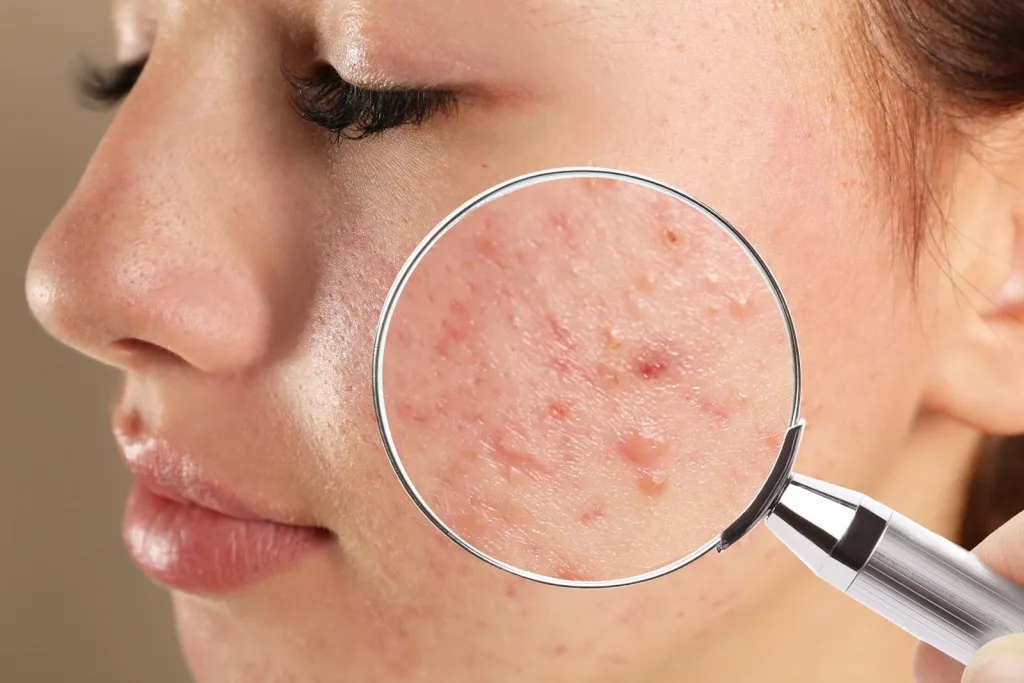by: Patricia Pontejos-Canivel, MD, DPDS
Acne is a hormonal skin condition that manifests as comedones known as “blackheads” or “whiteheads”. Comedones can become inflamed due to bacteria and turn into painful red bumps that become pustules or cysts. Our skin naturally produces oil or sebum and excess production can lead to clogging of the pores, this is what causes acne. Some factors that can contribute to the development or flaring of acne are:
- Hormones
- Genetics
- Stress
- Certain foods
- Oily facial and hair products
When acne is left untreated, it can become severely inflamed and this can lead to scarring. Common types of acne scars are:
- Rolling scars
- Box type scars
- Ice pick scars
- Hypertrophic scars
The best way to avoid scarring is to treat acne early and avoid picking on your skin. Different treatments can improve acne and acne scarring and this is best determined through a consultation with a board- certified Dermatologist. She/ he may suggest different treatments depending on the type of acne or acne scar you have.
“Maskne” or “Mask acne” is a new term that was coined due to the recent pandemic. It covers a wide range of skin conditions brought about by mask- wearing. Some cases may be real acne, but other conditions can also cause bumps on the skin. Some of these conditions are:
- Contact dermatitis
- Perioral dermatitis
- Rosacea
- Milia
- Folliculitis
“Maskne” can be treated with proper diagnosis and treatment by a board- certified Dermatologist and should never be a reason to stop wearing masks in public. Some ways to prevent developing these conditions are:
- Wearing a clean mask
- Keeping your face clean and moisturised on a daily basis
- Avoiding make-up in areas covered by the mask
- Avoiding irritating products
- Taking 15- minute “mask breaks” after 4 hours of mask- wearing, in a safe outdoor area with safe social distancing measures
Make sure to consult with a Board-Certified PDS Dermatologist!
REFERENCES:
Fitzpatrick’s Dermatology 9th edition
https://www.aad.org/public/diseases/acne/causes/acne-causes




